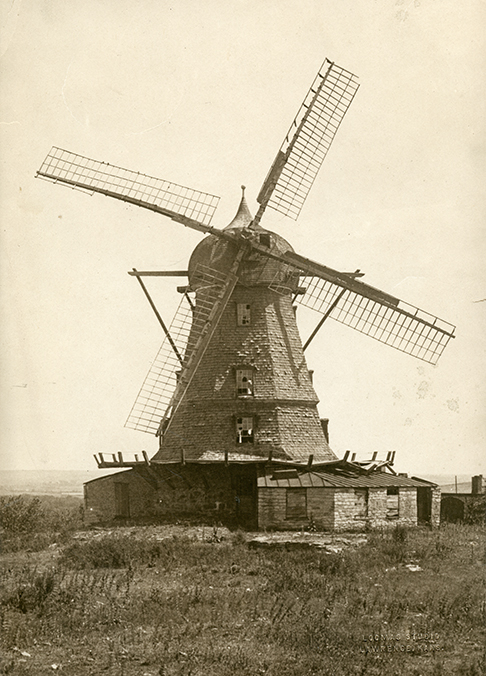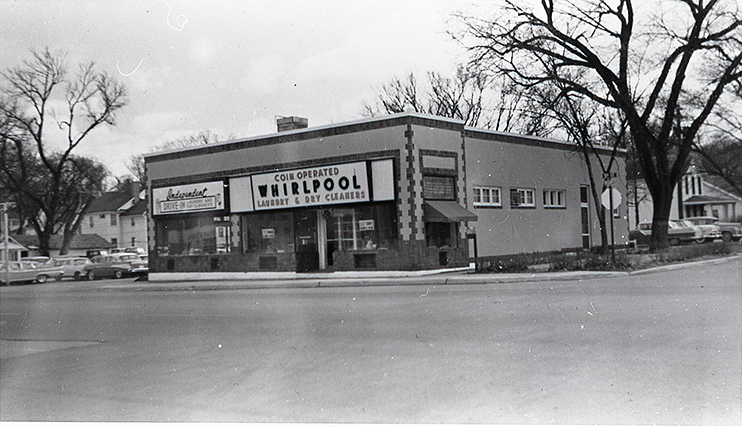|
| ABOUT US | |
The Windmill On August 21st, 1863 the mill’s completion was set back due to damages from Quantrill’s Raid. The damages totaled $9,700 but Wilder & Palm still managed to complete it by June of 1864. The primary use of the mill was to grind corn and wheat, but Wilder and Palm had other business ventures. They owned a carriage, plow, and wagon manufacturing business as well as their own flour brand. Unfortunately, due to larger businesses taking over Lawrence, they went bankrupt in 1885. From 1885 to 1905 the windmill was unused but gained popularity by the public. Lawrencians picnicked, travelers visited, and artists created at the grounds of the mill. On April 30th, 1905 it met its match and was destroyed by a fire. Legend has it, the fire was started by a visitor’s cigarette. |
 |
|
900 Mississippi History In March of 1922, Klock’s Windmill Grocery moved into its new home. The grocer shared his building with Beal Brother’s Meat Market until 1927 when the Beal’s bought their own building on Mass St. Fred Klock passed away in 1933 and his son, Helmer, and daughter-in-law, Sophia, who had managed the store since 1925, took over full control of the business. In 1944 the building was sold to R.M. Reeves, another well-known local grocer, who operated the store as Reeves Grocery until 1959. Reeves then leased the building to Ed Elem who converted into a 24/7 “laundry self-service operation” with “parking facilities” in 1959. Ed said the independent service and added parking was “in line with current trends in modern living”. In 1961, Elam went even further with the self-service business and installed 20 automatic dry cleaning machines making it the “nation’s first completely automatic, coin-operated dry-cleaning center.” |
Copyright © Big Mill

